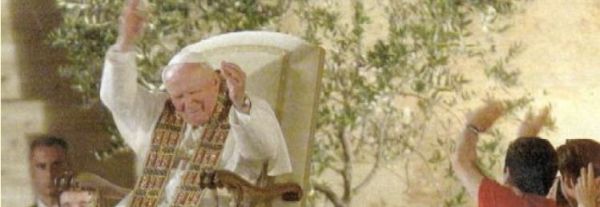The Upper Room in Jerusalem too was a kind of “school of faith” for the Apostles. However, in a sense, what happened to Thomas goes beyond what occurred near Caesarea Philippi. In the Upper Room we see a more radical dialectic of faith and unbelief, and, at the same time, an even deeper confession of the truth about Christ. It was certainly not easy to believe that the One who had been placed in the tomb three days earlier was alive again.
The divine Master had often announced that he would rise from the dead, and in many ways he had shown that he was the Lord of life. Yet the experience of his death was so overwhelming that people needed to meet him directly in order to believe in his resurrection: the Apostles in the Upper Room, the disciples on the road to Emmaus, the holy women beside the tomb. . . Thomas too needed it. But when his unbelief was directly confronted by the presence of Christ, the doubting Apostle spoke the words which express the deepest core of faith: If this is the case, if you are truly living despite having been killed, this means that you are “my Lord and my God”.
In what happened to Thomas, the “school of faith” is enriched with a new element. Divine revelation, Jesus’s question and man’s response end in the disciple’s personal encounter with the living Christ, with the Risen One. This encounter is the beginning of a new relationship between each one of us and Christ, a relationship in which each of us comes to the vital realization that Christ is Lord and God; not only the Lord and God of the world and of humanity, but the Lord and God of my own individual human life.
[Pope John Paul II, vigil at Tor Vergata, 19 August 2000]












